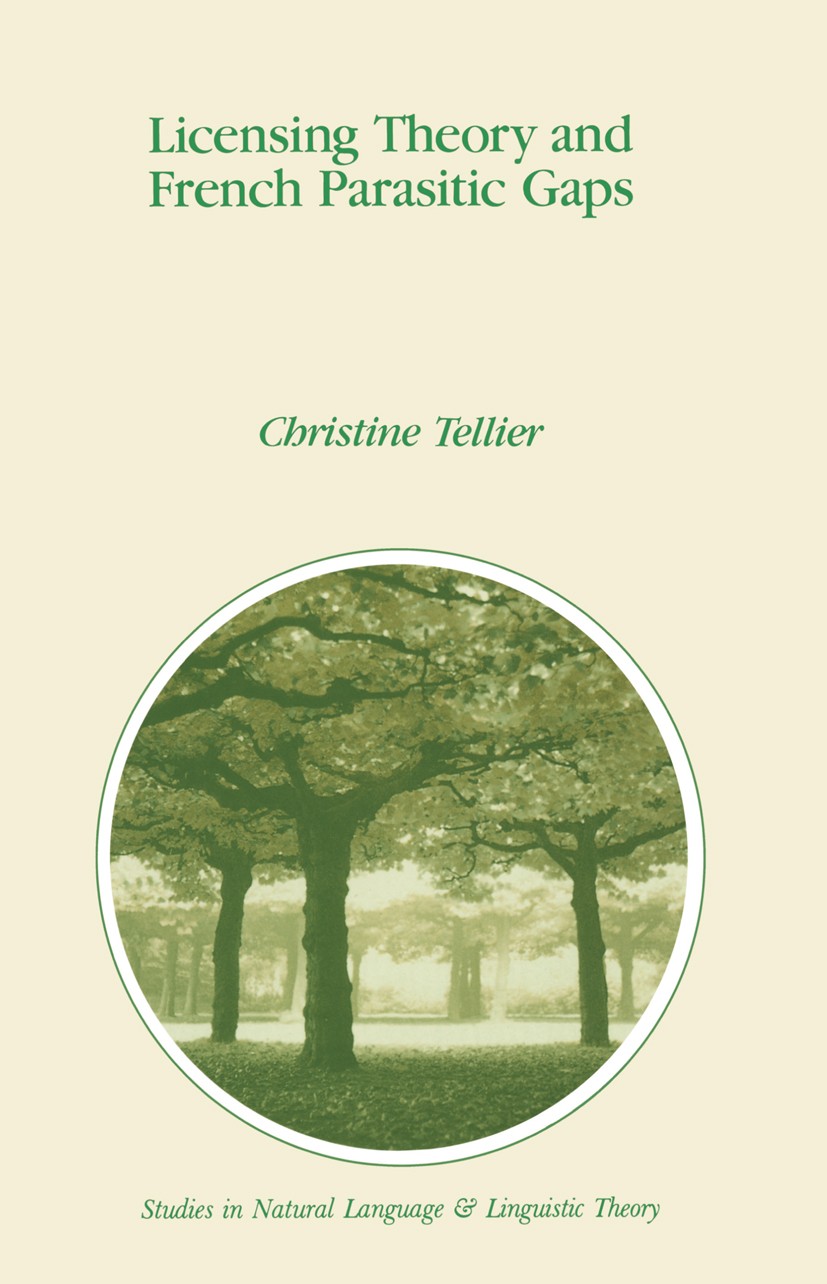| 书目名称 | Licensing Theory and French Parasitic Gaps |
| 编辑 | Christine Tellier |
| 视频video | http://file.papertrans.cn/586/585632/585632.mp4 |
| 丛书名称 | Studies in Natural Language and Linguistic Theory |
| 图书封面 |  |
| 描述 | The study of parasitic gap constructions (e. g. these are the reports; which you corrected _; before filing _i) has been a very lively area of research over the last decade. The impetus behind this lies mostly in the margi nality of the construction. Clearly, the intuitions that native speakers have about parasitic gaps do not stem from direct instruction; hence, it is reasoned, such knowledge follows from the restrictions imposed by Universal Grammar. Furthermore, it is unlikely that any principle of Universal Grammar refers specifically to parasitic gap constructions; their syntactic and interpretive properties must instead follow entirely from independent principles. My own interest in the phenomenon was sparked a few years ago, when, in a novel, I came across a sentence like the following: Chait un armateur; dont Ie prestige _; reposait largement sur la fortune _;, ‘he was a shipbuilder of whom the prestige was largely based on the wealth‘. As the indices indicate, the interpretation of the French sentence is un ambiguous: both the prestige and the wealth necessarily pertain to the same individual. In this aspect, the sentence much resembles the English parasitic gap construc |
| 出版日期 | Book 1991 |
| 关键词 | English; Index; aspect; complements; grammar; noun phrase; nouns; preposition; pronouns; subject; syntactic |
| 版次 | 1 |
| doi | https://doi.org/10.1007/978-94-011-3596-2 |
| isbn_softcover | 978-0-7923-1323-6 |
| isbn_ebook | 978-94-011-3596-2Series ISSN 0924-4670 Series E-ISSN 2215-0358 |
| issn_series | 0924-4670 |
| copyright | Kluwer Academic Publishers 1991 |
 |Archiver|手机版|小黑屋|
派博传思国际
( 京公网安备110108008328)
GMT+8, 2025-12-17 12:04
|Archiver|手机版|小黑屋|
派博传思国际
( 京公网安备110108008328)
GMT+8, 2025-12-17 12:04


